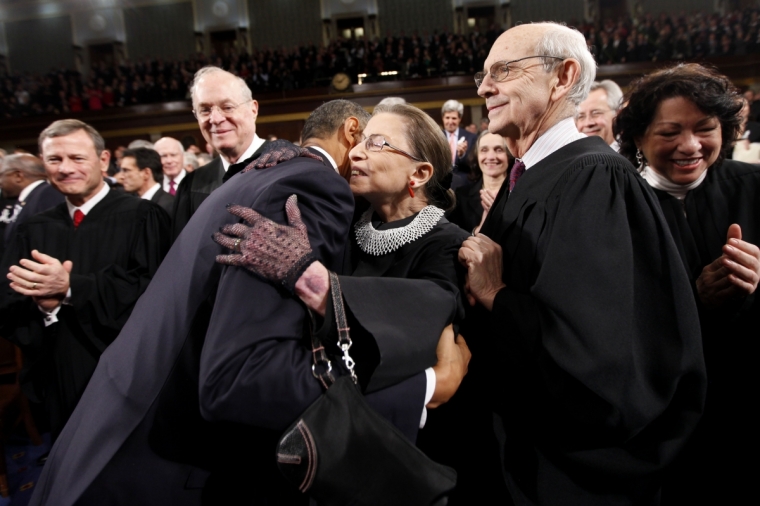Majority in US favor term limits for Supreme Court justices

WASHINGTON (Christian Examiner) – A strong majority of Americans favor term limits for U.S. Supreme Court justices, a new poll from Reuters/Ipsos has found.
In the poll, which surveyed the opinions of 1,611 people from various political affiliations, 66 percent of Americans claimed they would favor imposing a 10-year term limit on the justices. Only 17 percent said they favored lifetime appointments.
Currently, five of the nine justices have served more than 20 years. Chief Justice John Roberts is entering his tenth year, while Antonin Scalia has served on the nation's highest court since his appointment by President Ronald Reagan in 1986.
According to Reuters, the court's two rulings in June – which upheld federal health insurance exchanges (a key provision of the Affordable Care Act) and the legalization of gay marriage nationwide – have citizens thinking about the need to amend the Constitution to reign in the court's power.
In spite of the victories the court handed to liberals in both rulings, even 66 percent of Democrats said they favored a 10-year term for justices. Among Republicans, the figure was 74 percent. Independents nearly matched Democrats at 68 percent.
Even though most Americans believe a justices time in office should be limited to a decade, most still believed the court should have the final say on the interpretation and imposition of U.S. law. Only 29 percent said the executive or legislative branches should be able to overturn a Supreme Court ruling.
The judicial power of the United States, shall be vested in one Supreme Court, and in such inferior courts as the Congress may from time to time ordain and establish. The judges, both of the supreme and inferior courts, shall hold their offices during good behaviour, and shall, at stated times, receive for their services, a compensation, which shall not be diminished during their continuance in office.
When asked if they favored allowing a state government to ignore a U.S. Supreme Court decision, the majority of Americans (48 percent) also answered "no." Nearly 30 percent said state governments should have the power to ignore the high court's decisions.
Numerous presidential candidates have floated the idea that the Supreme Court should be subject to term limits. Republican presidential candidate and former Arkansas Gov. Mike Huckabee said in March that "nobody should be in an unelected position for life."
"If the president who appoints them can only serve eight years, the person they appoint should never serve 40. That has never made sense to me; it defies that sense of public service," Huckabee said.
At a Religious Liberty Town Hall meeting in Iowa earlier this month, Huckabee lamented the loss of religious liberty in America as a result of the Supreme Court's recent decisions.
"We need to overturn a radical Supreme Court," Huckabee said. "I would support term limits on the judiciary branch."
Kentucky Sen. Rand Paul and former Texas Gov. Rick Perry, also Republican candidates for president, essentially argued the same.
However, it is Texas Sen. Ted Cruz who has pushed hardest for a constitutional amendment for term limits for Supreme Court justices.
On the day the Supreme Court ruled 5-4 in Obergefell v. Hodges, which legalized same-sex marriage nationwide, Cruz wrote that action alone proved the need for term limits.
"This must stop. Liberty is in the balance. Not only are the Court's opinions untethered to reason and logic, they are also alien to our constitutional system of limited and divided government. By redefining the meaning of common words, and redesigning the most basic human institutions, this Court has crossed from the realm of activism into the arena of oligarchy."
Cruz wrote that the only remedy is term limits or elections for judges or justices to make them accountable to the people. Some 20 states, he said, had already instituted such elections.
Article III of the U.S. Constitution has been used to infer justices and other judges receive lifetime appointments to their benches, but that case is had to make given the wording of the article. According to Article III, Sec. 1:
"The judicial power of the United States, shall be vested in one Supreme Court, and in such inferior courts as the Congress may from time to time ordain and establish. The judges, both of the supreme and inferior courts, shall hold their offices during good behaviour, and shall, at stated times, receive for their services, a compensation, which shall not be diminished during their continuance in office."